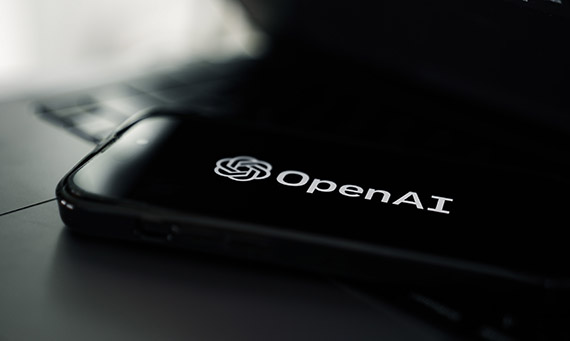|
|
|
|
 (Unsplash photo by Zac Wolff)
Large language models stand to revolutionize chemistryLarge language models like the one behind the popular ChatGPT could transform the future of chemistry, according to Andrew D. White, an associate professor of chemical engineering at Rochester. White outlines why he believes large language models (LLMs) represent the future of the field in an commentary published by Nature Reviews Chemistry.
White’s research group uses experiments, molecular simulations, and machine learning to design new materials. He has been using early versions of GPT-4 since September 2022 as part of OpenAI’s “red team,” a group of researchers hired to help mitigate the risks of artificial intelligence models by testing the platform’s capacity for harmful, illegal, or even unintended output. With the right guardrails in place, he expects GPT-4 and similar large language models to change not only how researchers connect their data, computer programs, and scientific literature, but also how they plan experiments.
“Like any emerging idea in chemistry, it will take time to see where LLMs will fit,” writes White.
Learn more about the risks and possibilities.
Bermuda plays key role in American colonial history
A storm off the coast of Bermuda, like the one depicted in this 1850 painting by Francis Danby, brought the first English settlers to the island in 1609. (Yale Center for British Art)
Bermuda belongs at the center, not the periphery, of the American colonial story, argues Rochester historian Michael Jarvis.
Reading histories about the early beginnings of the American colonies—the traditional origin stories of the United States—one would be hard-pressed to find much, if any, mention of Bermuda.
“When historians have considered it, they usually dismiss it as a curiosity or a failure,” writes Jarvis, an associate professor of history.
Jarvis has spent most of his academic career trying to fill in the blanks. His latest book, Isle of Devils, Isle of Saints: An Atlantic History of Bermuda, 1609–1684 (John Hopkins University Press, 2022) is his most recent contribution toward that end. As a prequel, it continues the work he started in his first book, In the Eye of All Trade: Bermuda, Bermudians, and the Maritime Atlantic World, 1680–1783 (North Carolina Press, 2010). In Isle of Devils, Isle of Saints, Jarvis makes the case that the small island is nothing less than “the crucible of colonization,” and deserves to join historic Jamestown and Plymouth as part of “an English-American historical triangle of origin.”
Read more about “the first of England’s experimental colonial laboratories.”
Pathology Research DayMonday, June 5, 9 a.m.–5 p.m.
Medical Center, Class of ’62 Auditorium and Flaum Atrium
Join the Department of Pathology and Laboratory Medicine for the 42nd annual Pathology Research Day. A keynote speech will take place at 1:30 p.m. with Tami Martino of the University of Guelph presenting “Circadian Medicine: Revolutionizing the Treatment of Cardiovascular Disease and Other Major Conditions.” The morning will feature podium presentations from selected residents and PhD students. Following the keynote speech, the afternoon will include juried poster presentations. Find out more.
Integrating Approaches for EADI Awareness and Implementation in Clinical Trial Program DevelopmentMonday, June 5, noon–1 p.m. EDT
Virtual
Attendees will learn about how to: implement a research equity, accessibility, diversity, and inclusion (READI) consultation program at their institution; plan and execute a multisite, interdisciplinary, multimedia challenge series focused on increasing READI awareness; and develop an evaluation strategy to determine programming effectiveness.
The presenters will be Gelise Thomas and Clara Pelfrey of the Clinical and Translational Science Collaborative of Case Western Reserve University. This event, hosted by the Trial Innovation Network, is available to the Rochester community via the UR Clinical and Translational Science Institute. Registration is required.
Annual Faculty Development Colloquium in the Health ProfessionsWednesday, June 7, 8 a.m.–1 p.m.
Medical Center, Class of ’62 Auditorium (G-9425)
This annual colloquium brings together faculty, educators, and healthcare professionals to share best practices. The event will include a plenary session, panel discussion, workshops, and poster presentations. View the program and register.
Human Health and the Environment Research SymposiumThursday, June 29, 8:30 a.m.–5 p.m.
Helen Wood Hall, Room 1W-304
The day-long symposium will include a poster session and flash talks selected from submitted abstracts. All types of research related to human health and the environment are welcome. Speakers are:
- Rick Woychik, director of the National Institute of Environmental Health Sciences and the National Toxicology Program
- Pamela J Lein, department chair and professor of molecular biosciences at the University of California, Davis
- Lee Murray, associate professor of earth and environmental sciences at Rochester
- Deborah Cory-Slechta, professor of environmental medicine at the Medical Center
Register and submit abstracts by June 8.
eConsent Support AvailableOngoing
The Clinical and Translational Science Institute can help orient you to basic requirements for electronic informed consent in your research study, discuss how to include interactive and educational elements, and refer you to the Office of Research IT for technical support. Contact the CTSI Research Help Desk to schedule a consultation.
|
|
|
|
|